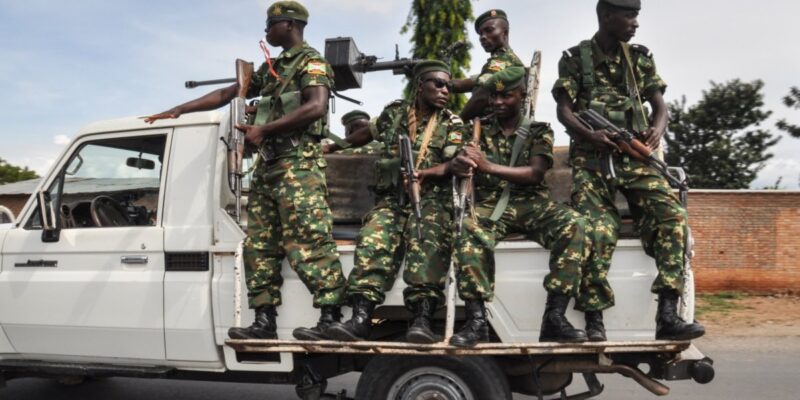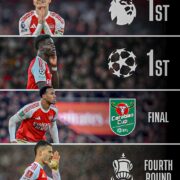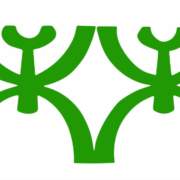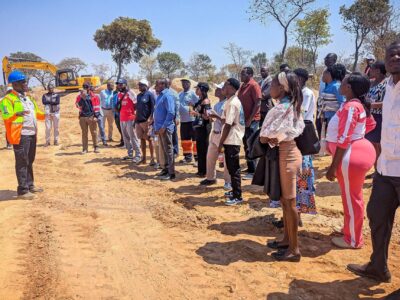The Democratic Republic of Congo (DRC) continues to grapple with a prolonged and complex conflict that has drawn the attention of multiple regional and international actors. Despite numerous peace initiatives, the situation remains fragile, necessitating a coordinated and inclusive approach to finding lasting solutions. However, the involvement of multiple regional organizations, particularly the East African Community (EAC) and the Southern African Development Community (SADC), has at times been marked by competition rather than collaboration. To effectively address the crisis, regional bodies must harmonize their efforts and present a unified front in tackling the root causes of instability in the DRC.
The EAC’s Response and DRC’s Concerns
On January 29, 2023, the EAC convened an extraordinary summit to deliberate on the escalating crisis in the DRC. Notably, President Felix Tshisekedi of the DRC did not attend the virtual meeting, signaling a lack of confidence in the bloc’s handling of the crisis. The DRC officially joined the EAC in 2022, but its relationship with the organization has been strained due to perceptions of bias among some EAC member states. Specifically, there have been allegations that certain members, particularly Rwanda, have failed to be held accountable for their alleged support of the M23 rebel group, which has been at the center of renewed violence in eastern DRC.
DRC’s Dual Membership and SADC’s Role
In addition to being a member of the EAC, the DRC is also part of SADC, a regional bloc with historical ties to the Congolese government. Due to its concerns over the EAC’s handling of the crisis, the DRC has increasingly leaned toward SADC for support. Today, 31 January 2025, SADC heads of state are meeting in Harare, Zimbabwe, for an extraordinary summit aimed at finding solutions to the conflict. This follows a pattern of numerous regional summits over the years, all attempting to bring stability to the country. While these efforts are commendable, history has shown that fragmented approaches from different regional bodies have done little to resolve the conflict in the long term.
Tensions Between Regional Powers: Rwanda and South Africa
The ongoing conflict has also heightened tensions between regional leaders, most notably Presidents Paul Kagame of Rwanda and Cyril Ramaphosa of South Africa. Recent remarks by South African Defence Minister Angie Motshekga suggest that Ramaphosa warned Rwanda that any attacks on South African National Defence Force (SANDF) troops in the DRC would be considered an act of war. Furthermore, Ramaphosa controversially referred to the Rwanda Defence Force (RDF) as a militia.
Rwanda swiftly rejected these accusations, with Foreign Minister Olivier Nduhungirehe publicly dismissing Motshekga’s statement as false. Kagame further escalated the dispute by claiming that Ramaphosa had privately admitted that SANDF soldiers were killed not by M23 rebels but by the Congolese army. These diplomatic tensions risk overshadowing the larger issue at hands”resolving the conflict in the DRC through a united and strategic regional approach.
A Complex and Multi-Dimensional Conflict
The conflict in the DRC is deeply entrenched, with over 140 local armed groups operating in the eastern region, each with different motivations, ranging from political grievances to economic interests. This number rises to over 150 when foreign armed groups such as the Lord’s Resistance Army (LRA) and the Allied Democratic Forces (ADF) are included. A key driver of this crisis is the lack of effective governance and administrative authority in the eastern DRC, which has allowed armed groups to proliferate and exploit the region’s vast natural resources.
While regional actors have initiated peace processes such as the Luanda and Nairobi talks, these efforts have yet to yield sustainable results. The presence of multiple armed groups, external interference, and weak state institutions make peace negotiations particularly challenging. This complexity underscores the need for greater coordination between SADC and the EAC to ensure that their interventions complement each other rather than work at cross purposes.
Dialogue: The Key to Lasting Peace
A lasting resolution to the DRC conflict must prioritize inclusive dialogue. While military interventions are often the default approach to dealing with armed groups, experience has shown that this strategy alone is insufficient and can sometimes escalate the conflict. The recent gains by the M23 rebels highlight the limitations of a purely military approach. Instead, a robust dialogue process that incorporates all key stakeholders, including local armed groups, community leaders, civil society, and regional partners, is essential.
Moreover, as tensions between regional powers such as Rwanda and South Africa continue to rise, African leaders must remember that sustainable peace comes through engagement, not confrontation. Diplomatic disputes only serve to divert attention from the real issues at hand. Instead of escalating tensions, regional leaders must commit to constructive dialogue that fosters collaboration rather than division. Without addressing the underlying grievances fueling the conflicts”such as political marginalization, resource control, and historical injustices”any temporary resolution is likely to collapse, leading to further cycles of violence.
Conclusion
The DRC crisis requires a unified and well-coordinated response from regional bodies. The competition between SADC and the EAC, coupled with rising diplomatic tensions between key regional players, has only weakened collective efforts to stabilize the region. Moving forward, these organizations must harmonize their peace initiatives, ensuring that their interventions reinforce rather than undermine each other. The DRC’s future depends on a comprehensive approach that combines security measures with meaningful political dialogue, economic reforms, and governance improvements. Only through inclusive and collaborative efforts can the people of the DRC hope for a future free from conflict and instability.













